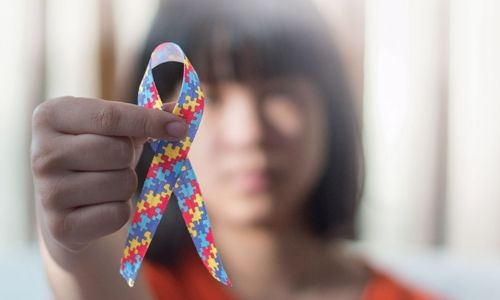Why autism is not just ‘male’ disorder
TDT | Manama
The Daily Tribune – www.newsofbahrain.com
Report by Zahra Ayaz
As the number of women discovering their place on the autism spectrum later in life continues to rise in Bahrain, questions arise as to why Autism Spectrum Disorder (ASD) has predominantly been associated with males.
An expert sheds light on the underrepresentation of females on the spectrum and emphasises the need to address this issue.
Dr. Noor Ahmed, a Certified Autism Specialist at the Think Behaviour and Development Centre for Children, highlights in an exclusive interview with The Daily Tribune that despite males being three times more likely to be diagnosed with ASD than females, there is a concerning issue of many girls and women remaining misdiagnosed or undiagnosed altogether.
Dr. Ahmed explains that outdated stereotypes about autism and a limited understanding of the wide spectrum of autism contribute to the lack of recognition of females on the spectrum.
She further highlights that the presentation of autism in women and girls may differ from that in other individuals on the spectrum due to various factors.
“Females on the spectrum often develop compensatory skills resembling neurotypical females, masking their autistic traits to fit in better,” she adds.
Social challenges
Research has shown that autistic girls experience fewer social challenges compared to boys.
They exhibit reciprocal conversation skills and demonstrate higher intrinsic motivation to build relationships and friendships.
Another characteristic commonly observed in individuals on the spectrum is a hyper-focused interest in specific topics or areas.
In the case of females with autism, their special interests may align with those of neurotypical individuals, such as music, books, or celebrities, but with greater intensity and frequency. Additionally, repetitive behaviours, known as “stimming,” in autistic females may be less conspicuous than in males.
For instance, twirling hair around their fingers could be a subtle form of stimming.
Unique pressures
Dr. Ahmed points out the unique pressures faced by women and girls, both socially and emotionally.
The constant need to conform to societal expectations often leads to chronic stress and anxiety among girls with autism, resulting in a loss of identity.
“Furthermore, the hormonal, physical, emotional, and social changes experienced during puberty increase the vulnerability of females on the spectrum, causing distress not only for themselves but also for their families.”
To address these issues, Dr. Ahmed suggests increasing awareness and learning from the experiences and stories shared by autistic females.
By expanding our understanding and developing more sensitive and intuitive support plans in Bahrain, we can create a safer environment for females on the spectrum to reach their full potential without fear of being overshadowed or left behind.
DR. NOOR AHMED, CERTIFIED AUTISM SPECIALIST AT THE THINK BEHAVIOR AND DEVELOPMENT CENTER FOR CHILDREN
Related Posts


